Mr. Phan Van Hung, Deputy Editor-in-Chief of Nhan Dan Newspaper, stated that in the digital age, data has become a “new resource”, a key driving force to promote innovation, develop the digital economy, digital society and build a digital government. However, along with that, the risk of information insecurity, personal data leaks, cyber attacks and violations of national digital sovereignty are present and increasingly complex.
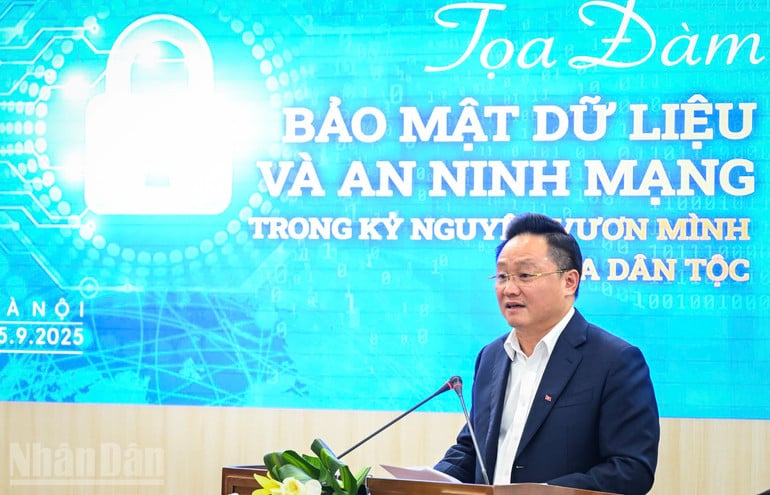
Our Party and State have repeatedly affirmed: Protecting cyber security is protecting the independence, sovereignty and sustainable development of the country in the new era. According to Mr. Phan Van Hung, while a huge amount of data is created every day, every hour, the risks and dangers of cyber attacks are also increasing. Just a small loophole can lead to major consequences, causing economic damage, affecting the reputation of the organization, and even threatening national security. This poses an urgent and vital requirement, which is to identify risks early, build a tight legal corridor, invest in technology and develop human resources for cyber security.
Mr. Phan Van Hung affirmed that data protection and cyber security are not only the responsibility of each country, but also a common global challenge. In the near future, Vietnam will host the signing ceremony of the Convention against Cybercrime called the “ Hanoi Convention”, marking the adoption of the first legal document of the United Nations on criminal justice after 20 years.
“That event shows that the international community is increasingly valuing multilateral cooperation, laying the foundation for a transparent, safe and humane cyberspace. Vietnam is also actively participating and contributing to this common effort,” Mr. Phan Van Hung emphasized.
Mr. Pham Dai Duong, Deputy Head of the Central Policy and Strategy Committee, said: Digital transformation is present everywhere and has become an inevitable trend of the times. Countries around the world are particularly interested in this issue. In Vietnam, the Party and State have had a clear and long-term policy on innovation and digital transformation. In particular, recently the Politburo issued Resolution No. 57/NQ-TW on breakthroughs in science, technology, innovation and national digital transformation. Mr. Duong said that this is an inevitable factor for the development of each country.
Resolution 57/NQ-TW identifies the development of science and technology and digital transformation in the spirit of self-reliance, autonomy and self-strengthening as key factors to ensure national defense and security and create a driving force for breakthroughs in the new era - the era of national growth.
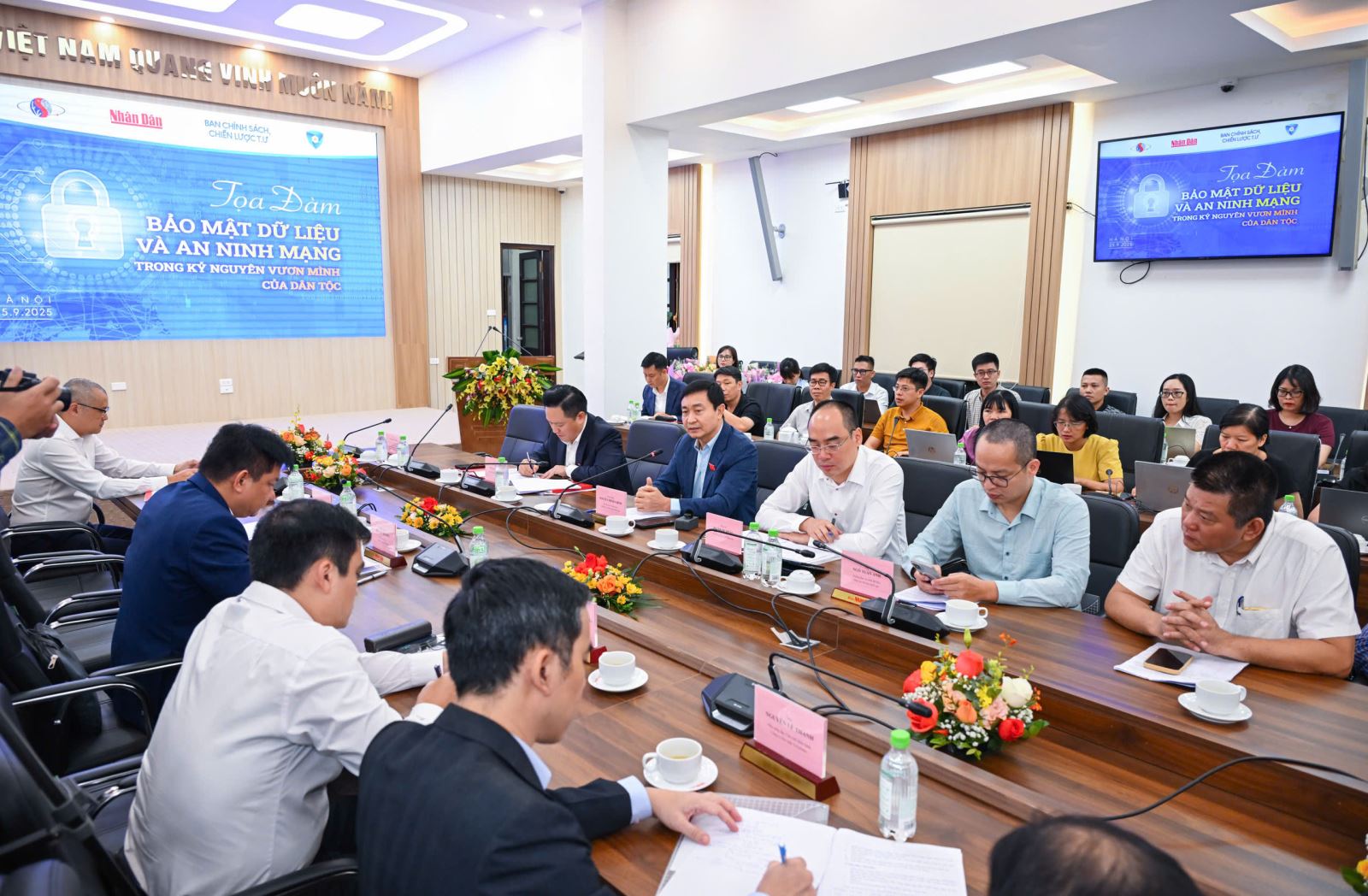
“Digital transformation is closely linked to many areas such as digital government, digital economy, etc. In which, data is a very important factor, considered as national assets; data security has the same meaning as protecting territorial sovereignty at sea and on land. The Central Government always attaches importance to protecting sovereignty in cyberspace, considering this a continuous and inseparable task in ensuring national security. Data is considered a national strategic asset, so we need strategies to ensure data security and network security. We also see that digital technology is constantly developing with high connectivity,” said Mr. Pham Dai Duong.
Professor, Dr. Tran Tuan Anh, Vice President of the Vietnam Academy of Science and Technology, said: The Institute coordinates with relevant agencies, ministries and branches to build a legal foundation - domestic standards: Legal documents on personal data protection and related documents (Law on Network Information Security, Law on Network Security); refer to international data protection standard frameworks (NIST, ISO 27000) and localize according to Vietnam's circumstances; National encryption standards (domestic encryption algorithms developed by the Government Cipher Committee); classify the confidentiality of data and the corresponding protection level.
Lieutenant General Nguyen Minh Chinh, Permanent Vice President of the National Cyber Security Association, commented: Regarding the biggest risk in this field, I think it is difficult to point out a single risk because any loophole in cyber security is dangerous, with unpredictable consequences. However, based on many years of experience working in the field, there are some outstanding challenges that we are facing such as: Vietnam is one of the countries that suffers many cyber attacks. Attackers steal data, steal state secrets, and can then encrypt, disable, and destroy information systems, causing great consequences for national security and social life. In addition, the subjects also attack to encrypt data and demand ransom.
“Next, we are facing fake news, false information and toxic information that attacks the Party's ideological foundation, defames the leadership, and undermines people's solidarity. Up to now, especially with the support of new technology on digital platforms, fake news can spread quickly, making it difficult to control. In addition, some individuals with economic interests, key opinion leaders (KOLs) create fake news for commercial purposes or due to lack of understanding, also spread false information, causing public confusion,” said Lieutenant General Nguyen Minh Chinh.
High-tech crime activities are becoming more complex: personal data theft, property fraud, weapons and explosives trading, drug trading. Criminals create secret groups in cyberspace.
The reason for the above shortcomings, according to Lieutenant General Nguyen Minh Chinh, is that although there is a legal framework, there are still many incomplete points. For example, with artificial intelligence (AI) being widely used, Vietnam does not have specific regulations on the scope, method of use, or measures to prevent the risk of this technology being exploited to steal data, especially in the political system, state agencies and enterprises.
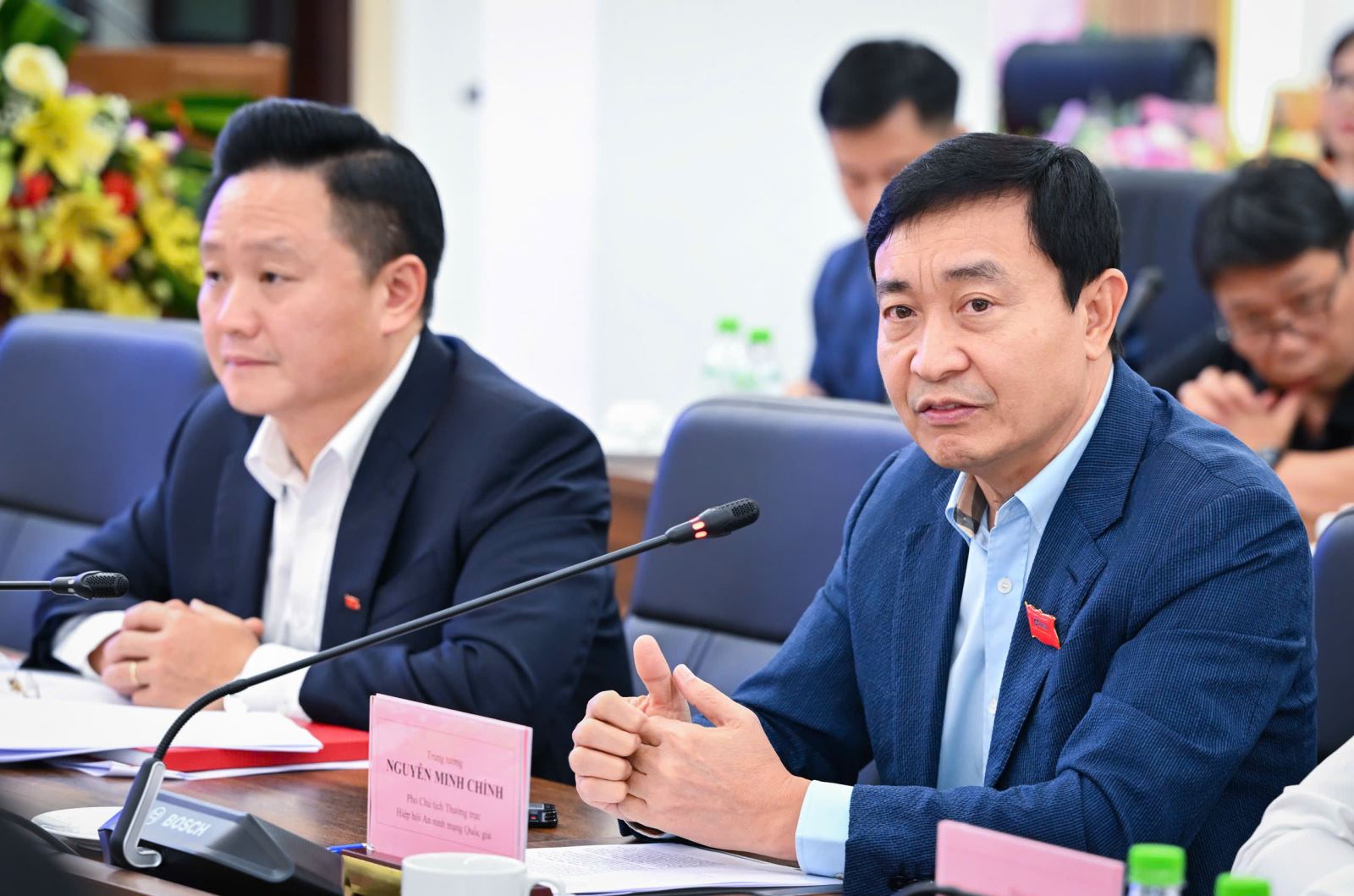
In addition, there is a lack of regulations, standards and mechanisms to control the quality of software put into use. When an incident occurs, the consequences can be very serious.
In terms of technology, Vietnam is implementing a rapid digital transformation roadmap, with many resources invested. However, there are still some limitations.
“First, we lack a “chief architect” to design the whole system. In addition, the investment system has been built over many years and in many stages, leading to overlaps, complexity, and difficulty in ensuring compatibility. This complexity has unintentionally created many loopholes that can be exploited by attackers,” said Lieutenant General Nguyen Minh Chinh.
Another important issue is human resources. Although Vietnam has standards and procedures, in reality, users often skip some steps because they think they are complicated or time-consuming, thereby unintentionally creating opportunities for attackers. The specialized force in this field is also currently thin, not meeting the requirements.
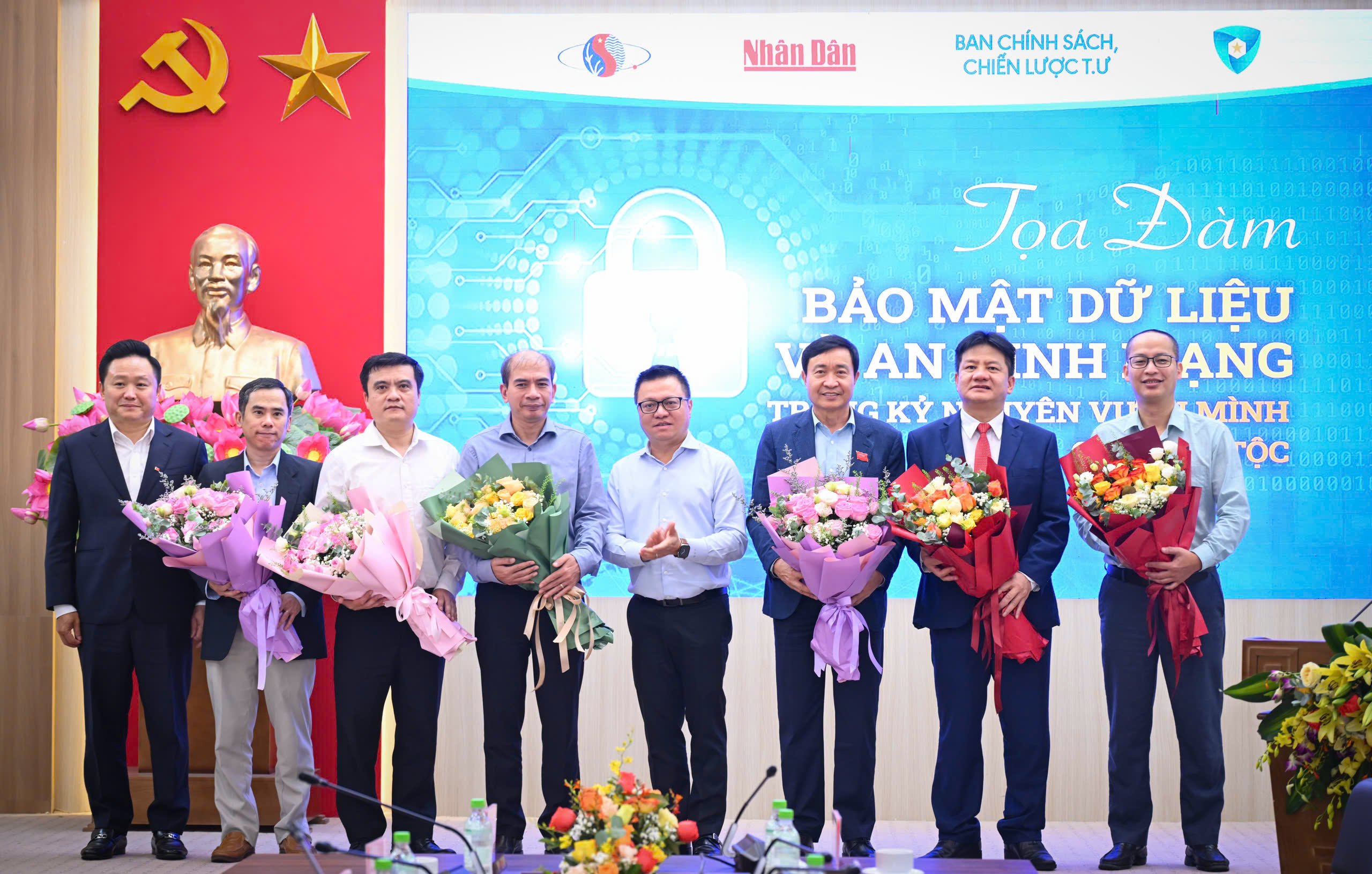
In addition, the coordination between agencies, departments, businesses and users is still not tight, fragmented and isolated. For example, when a cyber attack occurs, agencies and businesses often invite a cyber security company to immediately handle the incident. However, without coordination with the police force, which has an investigation process to determine the cause, the subject and carry out legal proceedings, the handling will lack comprehensiveness. In many cases, traces are completely erased, making the investigation difficult.
Another equally important challenge is the heavy dependence on foreign technology. Most of the current technical systems are not owned by Vietnam, leading to the risk of losing network security and safety.
Source: https://baotintuc.vn/xa-hoi/nhan-dien-som-rui-ro-an-ninh-mang-xay-dung-hanh-lang-phap-ly-chat-che-20250925182849107.htm




![[Photo] Prime Minister Pham Minh Chinh attends the groundbreaking ceremony of two key projects in Hai Phong city](https://vphoto.vietnam.vn/thumb/1200x675/vietnam/resource/IMAGE/2025/9/27/6adba56d5d94403093a074ac6496ec9d)



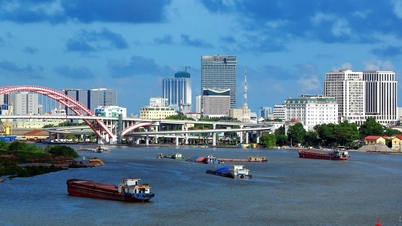











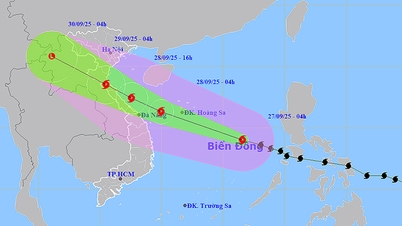
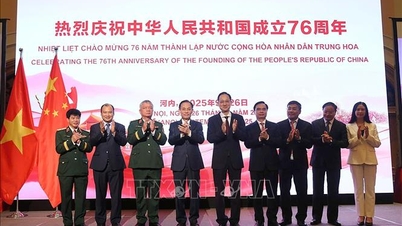


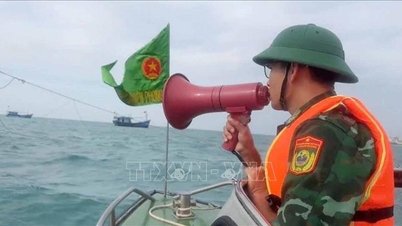






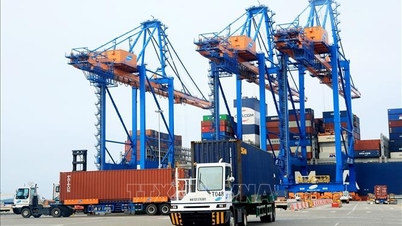
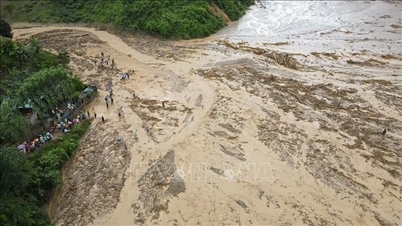
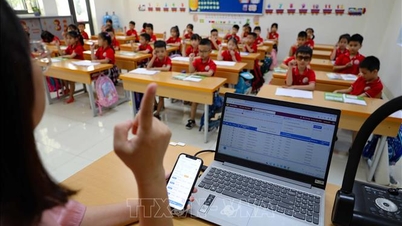
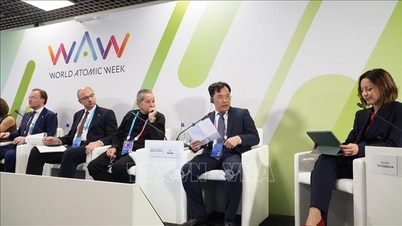















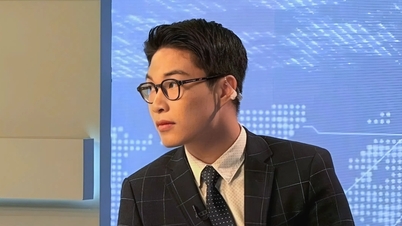

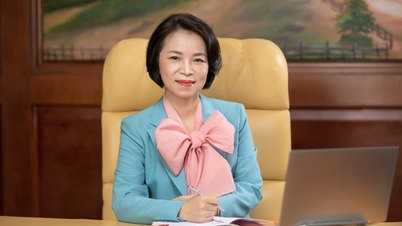





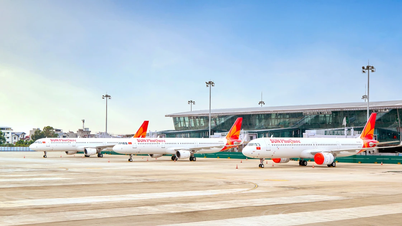






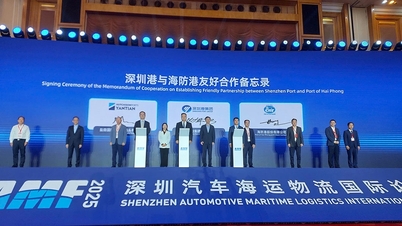







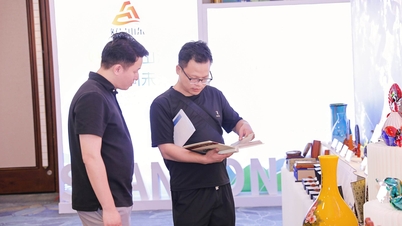

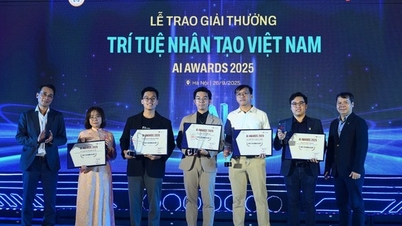

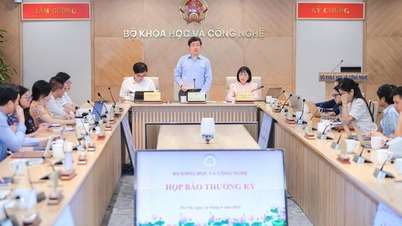


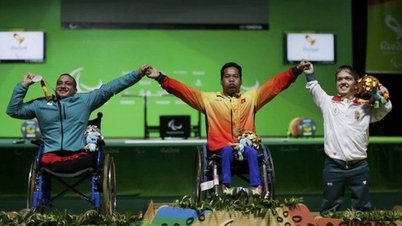

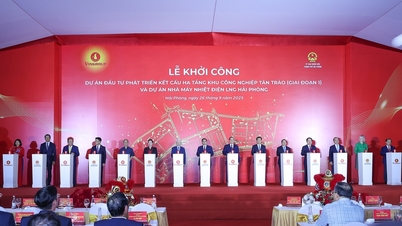





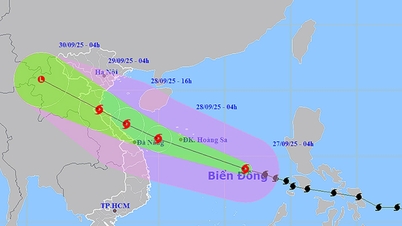

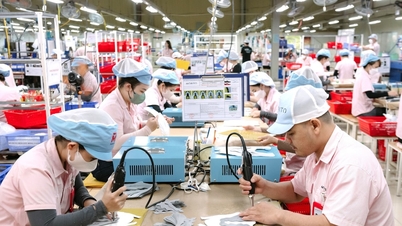

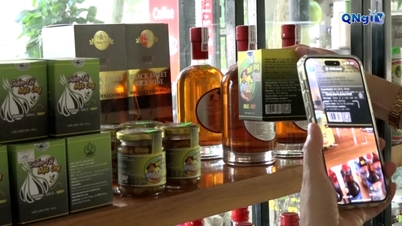

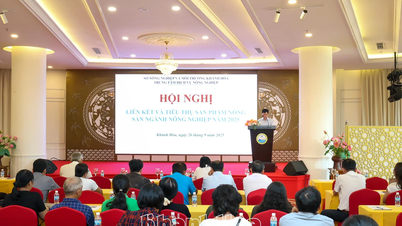









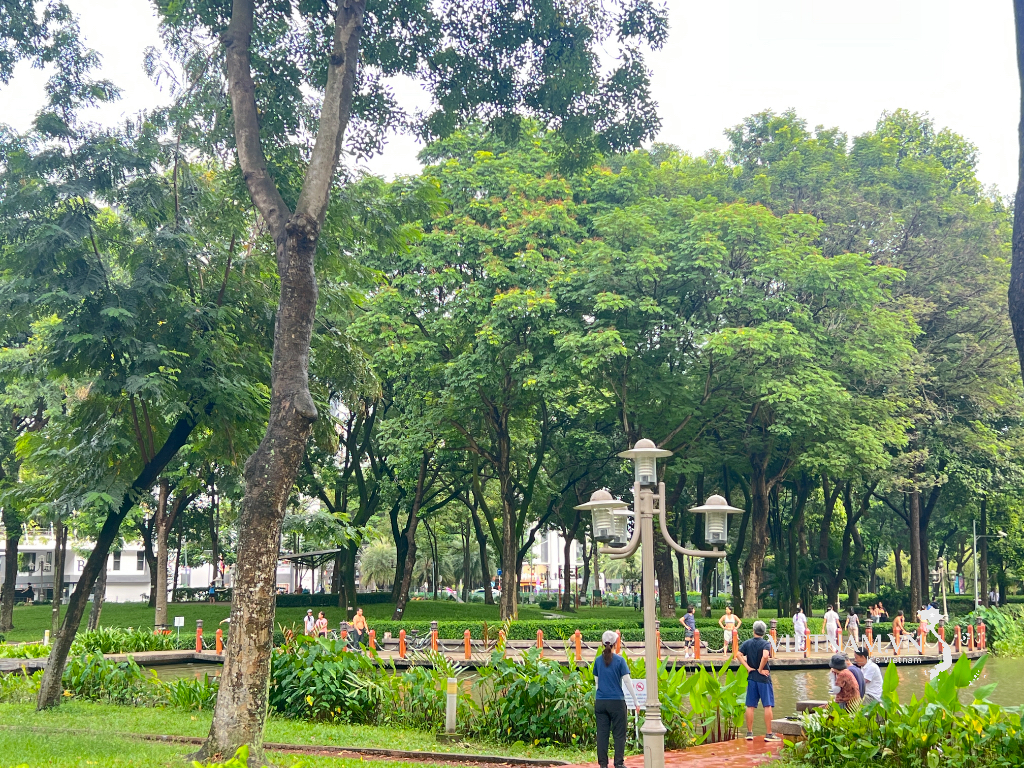
Comment (0)